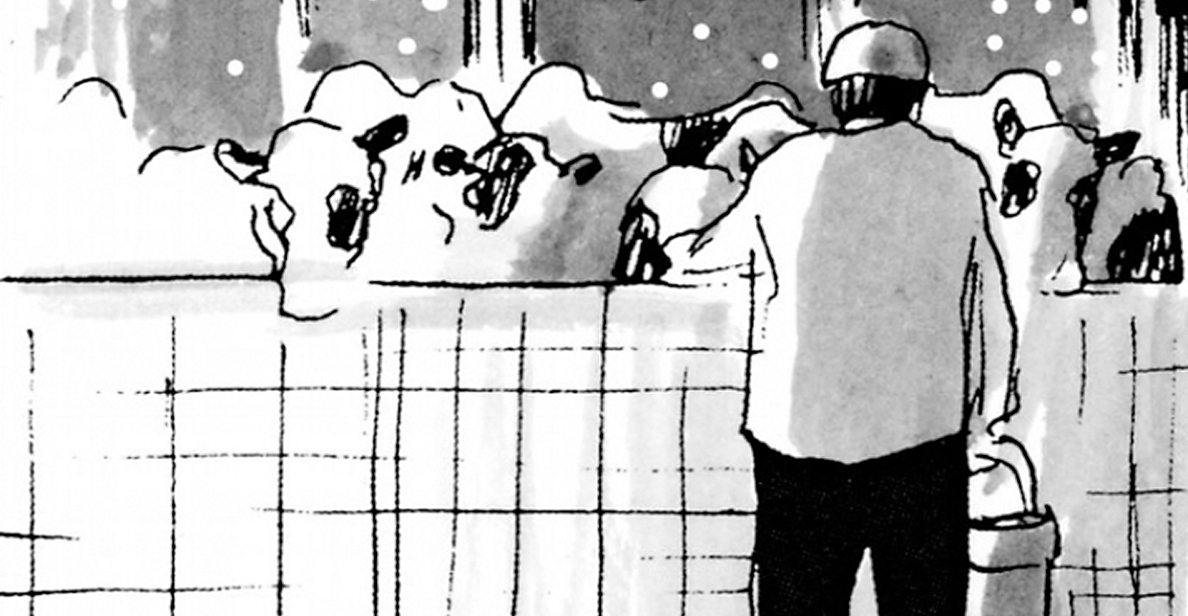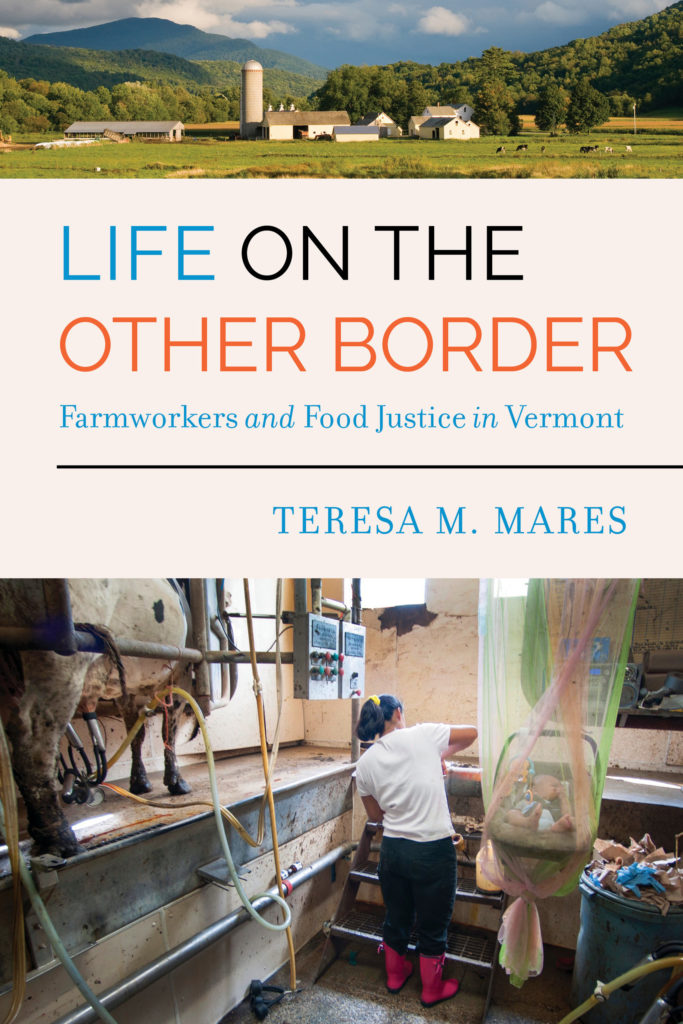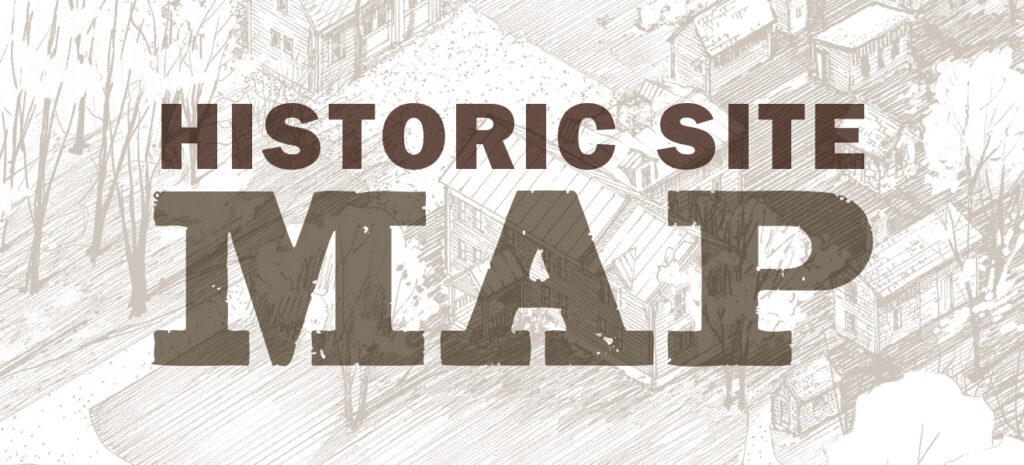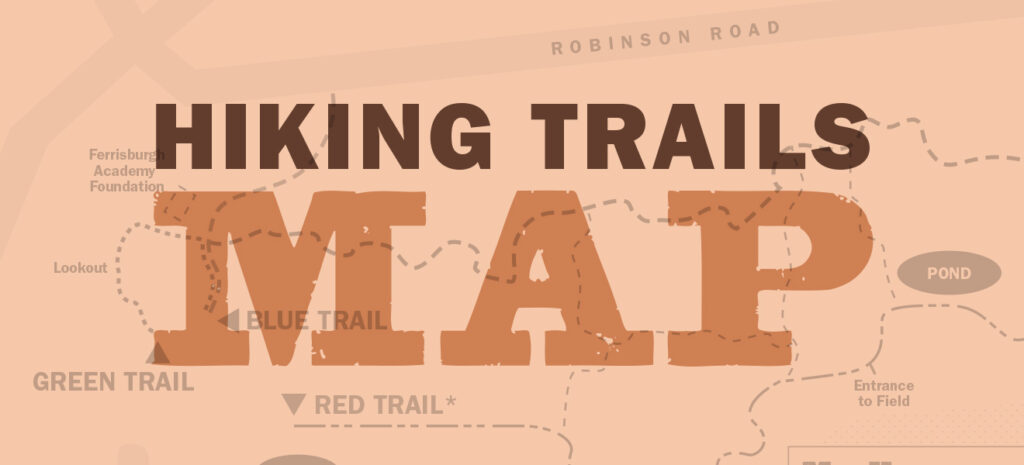Down on the Farm: Living under the Cloud of COVID-19 as an Immigrant Farm Worker in Addison County

by Priscilla Baker, Rokeby Museum Trustee
Vermont is home to over 1,200 Latinx farm workers, most from southern Mexico and Central America. Several hundred live and work in Addison County.

While some would call the labor of immigrant farm workers “unskilled,” this is an unfortunate misnomer according to Teresa Mares, UVM professor and author of the book, Life on the Other Border: Farmworkers and Food Justice in Vermont.
When Dr. Mares spoke at Rokeby Museum in July, 2019, she made a strong point that the work these farmers do requires a variety of skills and is often dangerous. Further, the suffering and the daily challenges immigrant workers face remain invisible to mainstream Vermonters. Always vulnerable to the fluctuations of the dairy industry and the needs of each individual farm and farmer, immigrant farm workers live with the anxiety of job insecurity, the physical toll of hard work, and the fear of being picked up by ICE.
Since Dr. Mares’ compelling talk, the world has become the stage for a global pandemic that has changed nearly every aspect of daily life — from how health care is delivered, to schooling, commerce, employment, travel, recreation, social interactions, as well as the availability and distribution of food. From the outset, farm workers were considered “essential” to the health and well-being of our community, including the hundreds of immigrant workers who have continued to work, for the benefit of all, in the barns and fields of Vermont farms.
While workers in the dairy industry are considered essential Dr. Mares suggests, “perhaps a better classifier during these harrowing times is “sacrificial.” This is how Dr. Mares cogently presents the situation in an update, “What the stay-at-home order means to migrant farm workers” for the Nature Public Health Emergency Collection, May 2020.
Knowing of these challenges, I began to wonder how immigrant farm workers in Addison County are faring, at this time, with the added stress of COVID-19. To learn how the COVID-19 pandemic is impacting the lives of local immigrant farm workers, I spoke with Heidi Sulis and Julia Doucet at Open Door Clinic (ODC) in Middlebury, and Veronica Chiambra of Addison Alllies, all service providers who are in regular contact with farm workers. Open Door Clinic responds to medical needs. Addison Allies responds to requests for transportation, English language tutoring, finding house furnishings, help navigating bureaucratic systems, preparing for the GED exam (General Education Diploma), securing food, and relief from financial hardship.
Beyond stay-at-home, masks and physical distancing
It became clear that COVID-19 has impacted immigrant farm workers in many different ways. Here is a partial list of some of these impacts:
- For many immigrant farm workers daily life and work are not that different from before COVID-19 because, for the last 3 years, they have stayed on their farms, in large part to minimize risk of being stopped by ICE. However, now there is little choice about going out, which makes daily life feel even more suspended and uncertain.
- Health care visits now take place over the phone and, when possible, video conferences. The nurses at ODC, using interpreter services when needed, assess the best path for treatment and help set that in motion. Because, when money runs short, medications is often the first expense to be dropped, they help find ways to make sure their patients have the medications they need.
- If a farm worker requires emergency inpatient medical care they may suddenly be strapped with a high bill. As hospitals face increasing budget difficulties because of COVID-19, they are unable to offer significant bill reductions for low-income patients, which means a farm worker may have a much higher hospital bill than before the pandemic.
- When sheltering in place began and ODC stopped seeing patients in their office, they assembled Emergency COVID Kits to be delivered to each farm. Kits contain thermometers, hand sanitizers, ibuprofen, two handmade masks per worker, as well information sheets in English and Spanish. Kits have been delivered to over 50 Addison County farms. Recently, a United Way grant has enabled other Vermont counties to put together their own kits, modeled after the Addison County initiative.
- Some dairy farms have cut back on production, others have ceased operations, and some hemp farms have closed, resulting in some farm workers losing their jobs and housing, or reduced work hours. In some situations, employers have used the pandemic as a reason to withhold or delay paying their workers.
- Some bureaucratic processes have been suspended or slowed down, such as court cases and paper work for documentation which means waiting indefinitely for necessary documents.
- Some farm workers have lost family members in Mexico and Central America to COVID-19 and probable COVID-19. While it might be difficult for them to travel home for funerals and to see family, in the best of times, the world situation increases farm workers’ sense of isolation from family and friends.
- Face to face English language instruction has been suspended by 26 volunteer teachers, although a few are able to continue by phone and video meetings. Farm workers receiving GED support from Vermont Adult Learning have also had classes suspended indefinitely.
- Auxiliary incomes have decreased or disappeared. Several women had created their own businesses of preparing culturally familiar food and selling meals to farm workers. Now they are unable to travel out of state to buy necessary food supplies, nor can they deliver to some farms since non-farmworkers are not allowed to come onto these farms.
- While other workers in the country, and in Vermont, have received assistance in the form of federal stimulus checks and unemployment, immigrant farm workers are excluded from these programs simply because of their citizenship status. This is true despite the “essential” work they have performed, taxes paid to state and federal governments, and their role in keeping food chains in operation.
What does the immigrant farm community need?
Olga, an immigrant farm worker, who has worked in Vermont the past two years, makes the point clearly and strongly in an interview, in May, with VPR’s Peter Hirschfeld. Policy makers distributing coronavirus aid, she said, “need to recognize we immigrants are a really important part of this country… we’re continuing to work in spite of everything that’s happening. So what the government needs to do is include us.”
The federal government prohibits states from using any federal coronavirus relief funds for direct support to undocumented people. Because of this serious exclusion from federal support, Vermont legislators are exploring ways the state can offer support in areas including housing, health care, and lost or reduced income. Both the Vermont House and Senate are working on ways to provide some financial relief to immigrant farm workers. Xusana Davis, Governor Scott’s Director of Racial Equity advocates for a fund to support immigrant farm workers.
What can we do?
We all can learn more about our immigrant farm worker community members by accessing resources and participating in action plans provided by organizations such as Migrant Justice, a Vermont organization whose mission “is to build the voice, capacity, and power of the farmworker community and engage community partners to organize for economic justice and human rights.”
We can contact our local legislators to express concerns as well as our desire for legislative action to address the basic needs of immigrant farm workers in Vermont. Both the Senate Agriculture Committee and the House Agriculture and Forestry Committee have been working on this.
Vermont’s Racial Equity Director, Xusana Davis, works with state government agencies and departments to identify and address systemic racial disparities. She can be reached at xusana.davis@vermont.gov or 802-828-3322
To learn about offering hands-on financial and volunteer support to Addison County immigrant farm workers, contact Addison Allies.
To learn about supporting health care services to Addison County immigrant farm workers, visit Open Door Clinic.
About the illustration above: this is from the comic, A New Kind of Work, by Delmar, and illustrations by Tillie Walden. The comic is part of a project called The Most Costly Journey, an enthnographic cartooning project that employs collaborative storytelling as a tool to mitigate loneliness, isolation, and despair among Latin American migrant farm workers on Vermont dairy farms. Learn more about this Open Door Clinic collaborative project.

Besides serving as a Rokeby board member and volunteer tour guide, Priscilla Baker was a volunteer English Language tutor for two immigrant farm workers in Addison County — until March 2020, when COVID-19 ended face-to-face activities. Of the many reasons why Priscilla serves on the Rokeby Museum board, particularly important to her is the museum’s commitment to use its history, archives, stories, and land as a platform to not only learn about the past, but to advocate for, and work toward, a more racially and socially just community and world.
 Rokeby Museum
Rokeby Museum





